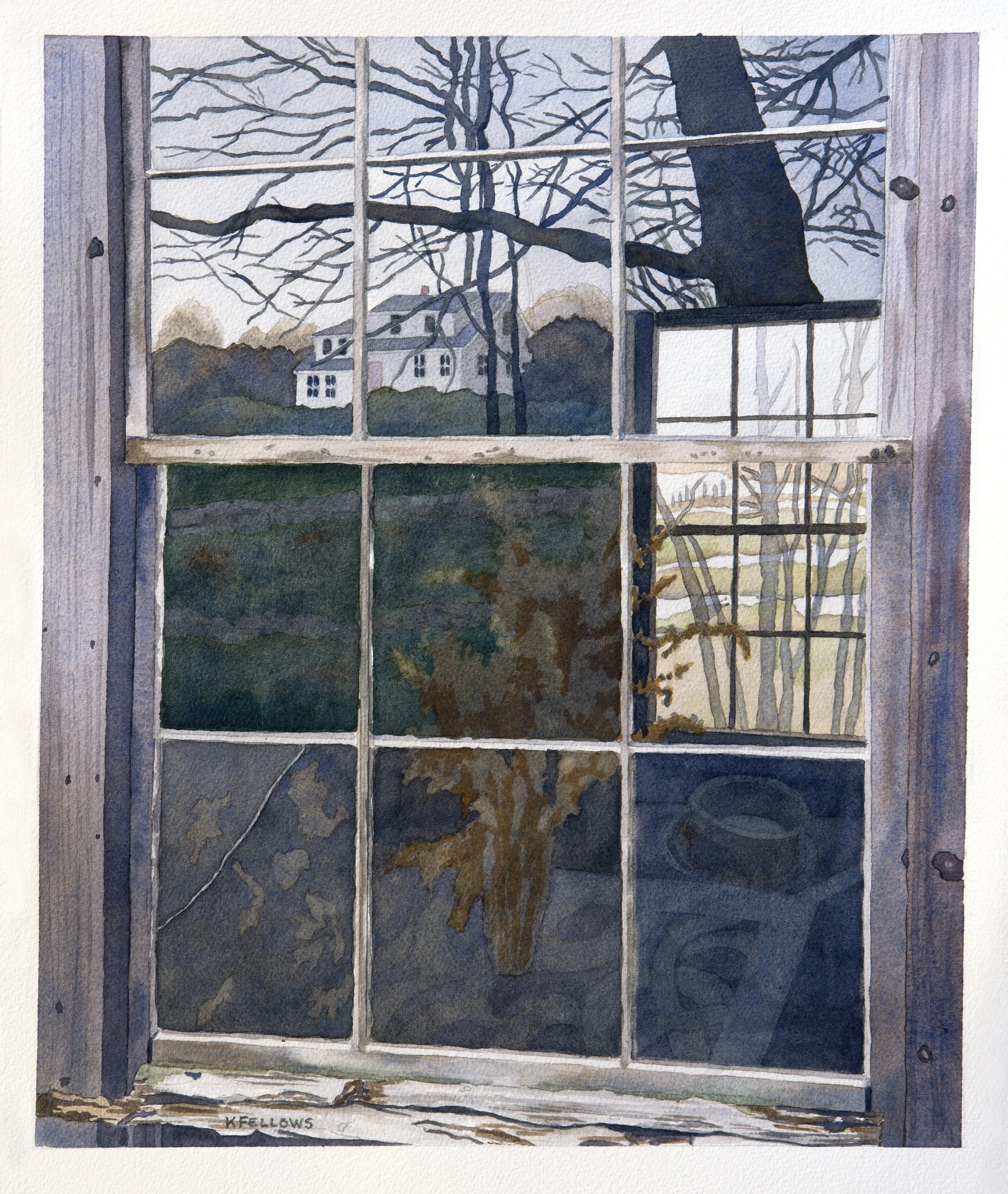Painting as a Spiritual Practice
Guest Writer: Ken Fellows MD
Window and Reflections
An old, white farmhouse perched on a hill overlooking a large Atlantic Ocean marsh called Brave Boat Harbor resides in our little Maine town. I’ve long wanted to compose the scene, but couldn’t imagine how to incorporate the house and the directly opposed marsh in one effective painting. Then, one day, the solution materialized while exploring the marsh shore, as reproduced in the accompanying watercolor image. But it’s a bit complicated.
The window displayed in the painting is on one side of a small, marsh-edge shack. The farmhouse is far behind the viewer, who is looking through a weathered window into the old shed. In the lower two rows of window panes, the observer sees the shack’s contents – a patterned table-top supporting dried flowers and a pottery bowl …and beyond them, a window in the far side of the shed through which the water, trees, and marsh islands of Brave Boat Harbor are also visible. Most of the upper two windowpane levels are reflections of the quaint white farmhouse, its surrounding landscaping, and a large tree with crooked branches, all in the back of the viewer.
I’ve been painting in retirement for over 20 years. I create scenes that are intriguing to me, and I paint for pleasure. My artwork intends no hidden meanings, no messages
However, when I consider this painting done several years ago, it occurs to me that it contains a subliminal metaphor about life – that whatever we think, imagine, or observe is overlaid by reflections from our past, reflections of things far behind us. These reflections comprise large parts of our emotions, which are a huge part of human decision-making. In varying ways, reflections are part of the human contemplative life.
All this seems quite involved and more than was ever intended. But ultimately, it’s just a painting, and any meaning or interpretation belongs entirely to the viewer.
Ken Fellows MD
Joanna https://www.joannaseibert.com/



